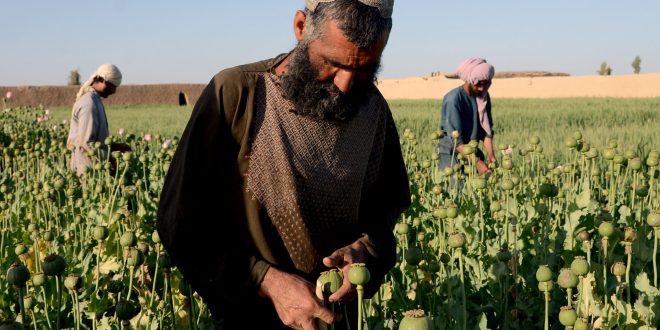AT News
KABUL – Officials from Tajikistan’s anti-drug agency have refuted assertions of diminished drug production in Afghanistan, asserting a sustained influx of narcotics into Tajikistan.
The Taliban regime purportedly outlawed drug cultivation, production, and trafficking upon seizing power. However, Tajikistan’s Drug Control Agency contests this, citing a lack of evidence substantiating a decline in drug trafficking from Afghanistan.
Tajikistan’s anti-drug agency officials conveyed that drug trafficking from Afghanistan persists unabated, with substances traversing Tajikistan’s borders and onward to other nations, as per Russia’s TASS news agency.
Hidden laboratories in Afghanistan have allegedly commenced drug production, with over 2.5 tons of narcotics discovered in border regions of both countries in 2023.
Despite claims of a significant reduction in opium cultivation under the Taliban’s rule, the Tajikistan Drug Control Agency has not observed tangible efforts from the Taliban administration to combat drug trafficking.
Recent intelligence points to the establishment of covert drug production facilities within Afghanistan, with Tajikistan serving as a transit point for these illicit substances destined for global distribution.
In 2023, Tajik authorities seized over 2.5 tons of drugs along their Afghan borders, underscoring the persistent challenge of drug trafficking in the region.
Despite assurances from the Taliban leadership, concerns persist regarding the humanitarian impact of the opium cultivation ban and drought in Afghanistan, particularly in rural areas, as highlighted by the United Nations Office on Drugs and Crime.
The reduction in opium cultivation and consequent plummet in farmers’ income, as reported by the United Nations, underscores the complexity of the narcotics issue in Afghanistan.
 Afghanistan Times
Afghanistan Times




